
Find Help
More Items From Ergsy search
-

Mental Health Support for Families: Resources and Strategies
Relevance: 100%
-

Mental Health Support Resources for Families
Relevance: 86%
-
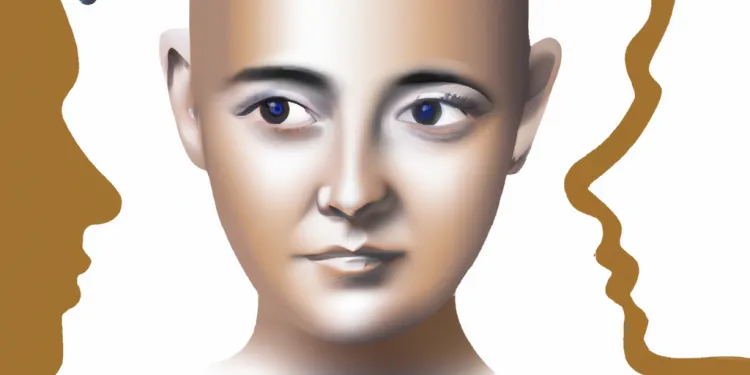
Mental Health Resources for Families
Relevance: 80%
-

Mental Health Support for Families: Resources and Helplines
Relevance: 80%
-

Mental Health Support for Families: Resources and Guidance
Relevance: 79%
-

Mental Health Support for Families - Latest Resources and Guidance
Relevance: 76%
-

Advancements in Mental Health Resources for Families
Relevance: 75%
-

Mental Health Support Resources in the UK
Relevance: 72%
-

Accessing Mental Health Support Resources in the UK
Relevance: 66%
-

Mental Health Impact of Cost of Living Crisis and Support Resources
Relevance: 63%
-

New Mental Health Strategy Launched to Address Youth Anxiety Epidemic
Relevance: 57%
-

What mental health resources are available for seniors?
Relevance: 56%
-

Mental Health Support Services in the UK
Relevance: 56%
-

Can primary care support workers access mental health support?
Relevance: 52%
-
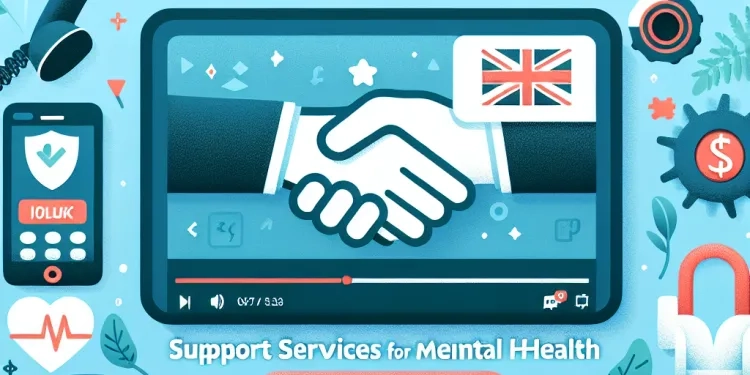
Support Services for Mental Health Amid Economic Uncertainty
Relevance: 49%
-

SLaM's Suicide Prevention, Learning and Support Strategy
Relevance: 48%
-

NHS Unveils Revolutionary Mental Health Support Initiative
Relevance: 47%
-

Mental Health: Laura's Story | NHS
Relevance: 46%
-
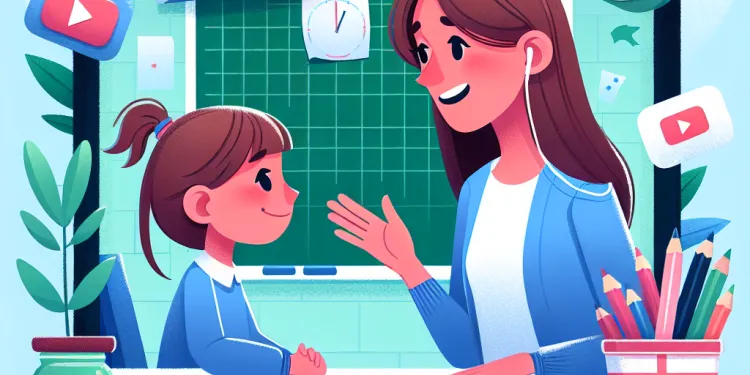
Understanding Mental Health in Children
Relevance: 44%
-

Tackling Youth Mental Health: Community Initiatives and Solutions
Relevance: 44%
-

Current Challenges in Youth Mental Health Services
Relevance: 43%
-

Impact of Rising Living Costs on Family Health
Relevance: 43%
-

What is the impact of obesity on mental health?
Relevance: 43%
-

Navigating Mental Health Services for Children and Adolescents
Relevance: 42%
-

Can relationship problems be resolved to improve mental health?
Relevance: 40%
-

How can families support a member with autism?
Relevance: 39%
-
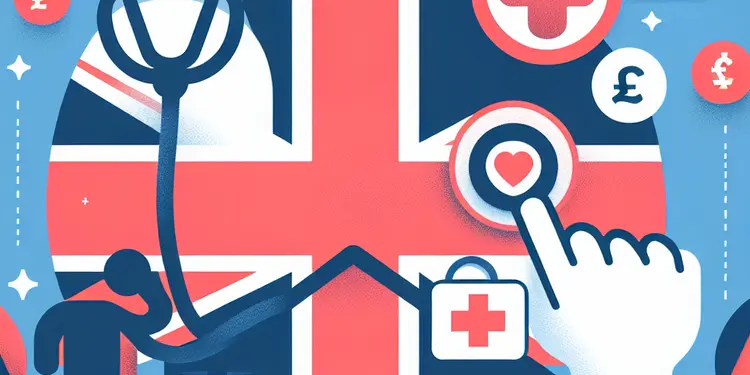
Can community helpers access physical health resources?
Relevance: 39%
-

Essential Tips for Mental Health and Well-Being Amidst Rising Living Costs
Relevance: 38%
-

Short Films About Mental Health - Personality Disorders
Relevance: 38%
-
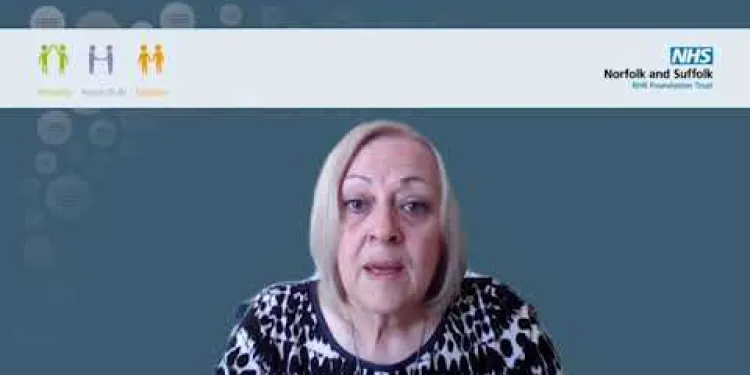
Suicide and Self Harm Prevention Strategy 2023-28
Relevance: 38%
-

Mental Health Services Struggle to Cope Amid Record Demand
Relevance: 38%
-

Addressing the Cost of Living Crisis: Community Support and Resources
Relevance: 38%
-

How can community helpers get mental health support?
Relevance: 37%
-
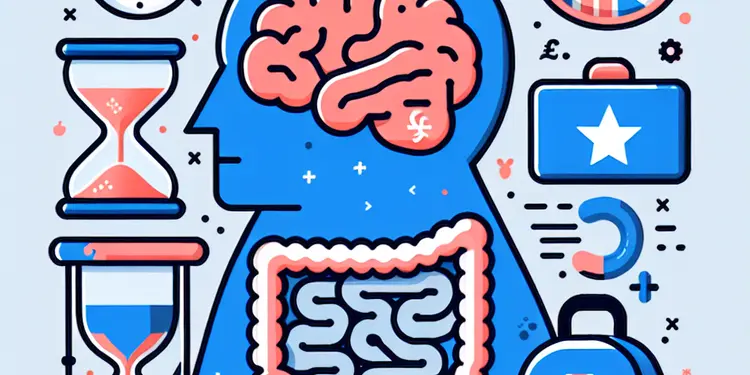
Can gut health affect mental health as one ages?
Relevance: 37%
-

Short Films About Mental Health - Trauma PTSD
Relevance: 37%
-

Practical strategies to support young children who stammer
Relevance: 37%
-

Addressing the Rising Cost of Living: Community Support and Resources
Relevance: 37%
-

Short Films About Mental Health - Anxiety
Relevance: 36%
-

What support is available for families of individuals with PIMD?
Relevance: 36%
-

Can ending a toxic relationship improve my mental health?
Relevance: 36%
Mental Health Support for Families: Resources and Strategies
Introduction
Mental health is a crucial component of overall well-being, not just for individuals but for whole families. When a family member struggles with mental health issues, it can affect everyone. Thankfully, there are numerous resources and strategies available across the United Kingdom to support families through these challenges.
Government and NHS Resources
The UK Government and the National Health Service (NHS) offer extensive resources for mental health support. Families can access mental health services through their local NHS providers, including counselling and therapy, psychiatric services, and emergency mental health care. Mental health hotlines like the NHS 111 service can provide immediate assistance and guide families toward appropriate support.
Charitable Organizations
Several charitable organizations in the UK specialize in mental health support. Mind, for example, offers advice, support, and information for anyone experiencing a mental health problem. The Samaritans provide a 24/7 helpline for those in crisis. Additionally, YoungMinds focuses on the mental health of children and young people, offering resources for parents to support their kids.
Online Resources and Helplines
The internet is a valuable tool for families seeking mental health support. Websites like the NHS’s mental health pages, Mind’s resources, and the Mental Health Foundation offer a range of informational articles, self-help materials, and directories for local services. Helplines, such as those provided by Samaritans and SANEline, offer confidential support and advice from trained professionals.
Support Groups
Connecting with others who understand what you’re going through can be immensely reassuring. Support groups, both online and in-person, offer families a space to share their experiences, ask questions, and receive emotional support. Organizations like Bipolar UK and Rethink Mental Illness run support groups for family members affected by their loved one’s mental health conditions.
Practical Strategies for Families
Beyond external resources, there are practical strategies families can implement to help manage mental health issues within the household. Open communication, setting routines, and encouraging healthy lifestyle choices like regular exercise and a balanced diet can all contribute to better mental well-being. It's also essential for family members to take care of their mental health to provide the necessary support effectively.
Conclusion
Supporting a family member with mental health issues can be challenging, but numerous resources and strategies are available to help families in the UK. By leveraging government services, charitable organizations, online resources, support groups, and practical approaches, families can navigate these difficult times together and foster a supportive environment for everyone.
Mental Health Support for Families: Resources and Strategies
Introduction
Mental health is very important for everyone, including families. If someone in the family has mental health problems, it can affect everyone else too. Luckily, there are many ways to get help in the United Kingdom.
Government and NHS Resources
The UK Government and the NHS offer lots of help for mental health. Families can get services like talking to a counselor, therapy, and emergency help through the NHS. You can call NHS 111 if you need help right away. They can also tell you where to go for more support.
Charitable Organizations
There are many charities in the UK that help with mental health. Mind gives advice and support to people with mental health problems. The Samaritans have a phone line you can call anytime if you need to talk. YoungMinds helps with the mental health of children and gives parents advice to help their kids.
Online Resources and Helplines
The internet is a great place to find mental health support. Websites like the NHS, Mind, and the Mental Health Foundation have articles and advice. They also have lists of places where you can get help nearby. Helplines like Samaritans and SANEline let you talk to someone who can help and give you advice.
Support Groups
Talking to others who know what you're going through can really help. Support groups, both online and in person, let families share their stories and get emotional support. Groups run by Bipolar UK and Rethink Mental Illness help family members who are affected by their loved one’s mental health issues.
Practical Strategies for Families
There are things families can do at home to help with mental health problems. It's good to talk openly with each other, have routines, and make healthy choices like exercising and eating well. Family members should also look after their own mental health so they can support each other better.
Conclusion
Helping someone in your family with mental health problems can be tough, but the UK has lots of resources to help. By using services from the government, charities, online tools, and support groups, families can work through tough times and support each other.
Frequently Asked Questions
What is mental health?
Mental health includes our emotional, psychological, and social well-being. It affects how we think, feel, and act. It also helps determine how we handle stress, relate to others, and make choices.
How can I tell if a family member is struggling with mental health issues?
Signs can include changes in mood, behavior, sleeping patterns, or appetite. You might also notice withdrawal from social activities, excessive worry, or expressions of hopelessness. If you are concerned, it's important to encourage them to seek professional help.
What resources are available in the UK for families dealing with mental health issues?
The NHS provides a range of mental health services. Additionally, charities like Mind, Rethink Mental Illness, and YoungMinds offer support and information. Online platforms like Every Mind Matters also provide useful resources.
How can I support a family member with mental health issues?
Listen without judgment, encourage them to seek professional help, educate yourself about their condition, and promote a healthy lifestyle. Offering practical help and involving other supportive family members can also be beneficial.
What should I do in a mental health crisis?
In the UK, you can call 999 for immediate help. You can also contact the NHS urgent mental health helpline or visit A&E. Organizations like the Samaritans are available for crisis support.
How can I take care of my own mental health while supporting a family member?
Set boundaries, make time for yourself, seek support from friends and mental health professionals, practice self-care, and consider joining a support group for families.
Can children and teenagers experience mental health issues?
Yes, children and teenagers can and do experience mental health issues such as anxiety, depression, and ADHD. It's important to watch for signs and seek appropriate professional help.
Are there any specific mental health services for children and young people in the UK?
Yes, Child and Adolescent Mental Health Services (CAMHS) provide assessment and treatment for young people with emotional, behavioral, or mental health difficulties. There are also specialized services like YoungMinds.
What role can schools play in supporting a child's mental health?
Schools can offer counseling services, implement anti-bullying policies, provide mental health education, and create a supportive environment. Teachers can also observe and report any concerning behaviors.
Are there online resources for mental health support?
Yes, platforms like Mind, Mental Health Foundation, and Every Mind Matters offer online resources, information, and tools for managing mental health. Online therapy and counseling services are also available.
What financial support is available for families affected by mental health issues?
You may be eligible for benefits like Personal Independence Payment (PIP), Employment and Support Allowance (ESA), and Carer's Allowance. Local councils may offer additional support.
How can I access therapy or counseling services in the UK?
You can be referred by your GP, or self-refer to NHS psychological therapies services (IAPT). Private therapy is also an option, and many charities offer counseling services.
What are some self-help strategies for managing mental health?
Strategies include maintaining a healthy lifestyle, practicing mindfulness and relaxation techniques, setting manageable goals, staying connected with others, and seeking professional help when needed.
Can medication help with mental health issues?
Medication can be effective for some mental health conditions, often in combination with therapy. It's important to discuss options with a healthcare professional to determine the best course of treatment.
What should I do if a family member refuses to seek help for their mental health issues?
Encourage open communication, express your concerns, offer to assist them in finding help, and be supportive without being forceful. In some cases, you may need to seek advice from a mental health professional on how to proceed.
What is mental health?
Mental health is about how you think and feel. It is also about how you handle stress, relate to other people, and make choices. Taking care of your mental health is important.
Here are some helpful tips:
- Talk to someone you trust if you feel upset.
- Do things you enjoy, like drawing or playing games.
- Take deep breaths when you are stressed.
Mental health is about how we feel, think, and get along with other people. It helps us know how to deal with stress, make friends, and decide what to do.
How can I know if someone in my family is having trouble with their feelings?
It's important to check if someone in your family seems sad or worried a lot. Here are some signs to watch for:
- They seem sad all the time.
- They get angry easily.
- They don't want to do things they used to like.
- They have trouble sleeping.
- They eat much more or much less than before.
- They say they feel scared or worried often.
If you notice these signs, talk to them gently. Let them know you care and want to help. You can also suggest they talk to someone who knows about feelings, like a doctor or counselor.
Using pictures or stories can help explain things better. Remember, being kind and patient is very important.
Here are some things to look out for:
- Mood changes: Feeling very happy or very sad.
- Behavior changes: Acting differently than usual.
- Sleep changes: Sleeping too much or too little.
- Eating changes: Eating more or less than usual.
- Avoiding friends and family: Not wanting to be around others.
- Worrying a lot: Feeling scared about the future.
- Feeling hopeless: Thinking things will never get better.
If you notice these things, it's important to talk to them. Tell them they can get help from a doctor or a counselor. Talking to someone can help them feel better.
What help can families find in the UK for mental health problems?
If your family has mental health worries, there are places you can find help:
- Talk to your doctor. They can give advice and tell you where to go for help.
- Look for groups. Some charities like Mind or YoungMinds offer support.
- Find a counselor. They are people you can talk to about your feelings.
- Call a helpline. There are phone numbers where you can call for help, like Samaritans.
You can also try these tips:
- Talk to someone you trust about how you feel.
- Write down your feelings in a notebook.
- Try to get lots of sleep and eat healthy foods.
- Do some exercise or take a walk outside.
Remember, you are not alone and there is help out there for you and your family.
The NHS has different services to help with mental health. There are also charities that can help, like Mind, Rethink Mental Illness, and YoungMinds. They give support and information. You can also find help online with Every Mind Matters. They have lots of useful information.
How can I help a family member who has mental health problems?
Here are some ways you can help:
- Listen to them. Let them talk about their feelings.
- Show you care. Tell them you are there to help.
- Ask them what they need. They might want someone to talk to or help with tasks.
- Learn more about their mental health condition. This helps you understand them better.
- Encourage them to see a doctor or therapist. They can get professional help.
- Be patient. Getting better takes time.
- Suggest they join a support group. Meeting others can help them feel less alone.
Remember to also take care of yourself. Helping someone else is important, but your well-being is too. Talk to a friend or therapist if you need support.
Listen to them with an open heart. Tell them it is good to talk to a doctor. Learn more about what they are going through. Help them live healthy. You can also do small things to help them, and ask other family members to help too.
What to Do in a Mental Health Crisis
Are you feeling very upset or confused? This is a mental health crisis. Here is what you can do:
- Tell someone you trust how you feel. It could be a friend, family member, or neighbor.
- If you need help right now, call emergency services. They can help you feel safe.
- You can also call a mental health helpline. The people there are friendly and ready to listen.
- Try talking to a doctor or a counselor. They know how to help you feel better.
- If you want to stay calm, try deep breathing. Breathe in slowly and then breathe out slowly.
Here are some tools that might help:
- Download apps for relaxation and calmness.
- Listen to soothing music or sounds.
- Write or draw about your feelings in a journal.
Remember, it is okay to ask for help.
In the UK, you can call 999 if you need help right away. You can also talk to the NHS urgent mental health helpline or go to A&E. Groups like the Samaritans are there to help if you are feeling very upset.
How can I look after my own feelings while helping a family member?
It is important to look after how you feel. Here are some simple steps:
- Take breaks: Make sure you rest and do fun things.
- Talk to someone: Share your feelings with a friend or helper.
- Stay healthy: Eat well, sleep, and exercise to feel good.
- Use tools: Try writing a diary or drawing pictures to share how you feel.
- Ask for help: It is okay to ask others for support when you need it.
Remember, it is important to care for yourself while you help others.
Set clear rules for yourself. Make sure you have some "me time" every day. Talk to friends or people who can help you feel better, like counselors. Do nice things for yourself to feel good. Think about joining a group where families support each other.
Can kids and teenagers have mental health problems?
Yes, kids and teenagers can have mental health problems. These are like feeling very sad, worried, or angry. It's okay to talk about these feelings.
There are people who can help, like doctors and counselors. Here are some things that might help:
- Talking to a trusted adult, like a parent or teacher.
- Writing down feelings in a diary.
- Doing activities you enjoy, like drawing or playing outside.
Remember, it's important to ask for help if you need it.
Yes, kids and teenagers can have problems with their feelings and thoughts, like anxiety, feeling very sad, or having trouble paying attention (called ADHD). It is important to look for signs that something might be wrong and get help from doctors or teachers.
Are there special mental health services for kids and young people in the UK?
Yes, there are special services to help kids and young people with mental health in the UK.
If you or someone you know needs help, you can talk to a doctor. They can tell you where to go for help.
You can also call a helpline to get support. Someone friendly will listen and help you find what you need.
Using apps or websites for support is also a good idea. They can help you learn and feel better.
Remember, it’s okay to ask for help, and people are there for you.
Yes, there are places that help kids and teenagers with their feelings and behavior. These places are called Child and Adolescent Mental Health Services, or CAMHS for short. CAMHS helps if you feel upset, act differently, or have trouble with your thoughts. There are also special groups like YoungMinds that can help too.
How can schools help with a child's feelings and emotions?
Schools can do a lot to help children feel good and happy.
- Teachers can listen to children and help them when they are sad or worried.
- There can be safe places in school where children can go if they need a break or feel upset.
- Schools can teach children how to talk about their feelings and be kind to each other.
Using pictures, stories, or games can help children understand their feelings better.
Schools can help students by providing counseling. They can also have rules against bullying. Schools can teach about mental health. They can make sure everyone feels safe and supported. Teachers should watch for any worrying behavior and tell someone if they see it.
Can I find help for my feelings online?
Yes, there are places like Mind, Mental Health Foundation, and Every Mind Matters that can help you look after your feelings. They have lots of helpful information and tools on the internet. You can also talk to a therapist or counselor online if you need to.
What money help can families get if someone has mental health problems?
It can be hard if someone in your family has mental health problems. But there is help you can get. Here are some ways families can get money help:
- Disability Benefits: You might get extra money if someone has mental health problems. This is called a disability benefit.
- Housing Support: You can get help to pay for your home if money is hard. This is housing support.
- Carer’s Allowance: If you look after someone with mental health problems, there might be money for you. This is called carer's allowance.
- Food Vouchers: Some groups give food vouchers if you need extra help to buy food.
- Health Support: You can talk to doctors or helpers who know about mental health. They can give advice and support.
If you need help, you can:
- Talk to someone at a charity.
- Ask a social worker for advice.
- Visit a website that helps families with money problems.
You might be able to get money help like Personal Independence Payment (PIP), Employment and Support Allowance (ESA), and Carer's Allowance. Your local council might also have extra help.
How can I find help for my feelings in the UK?
Do you need to talk to someone about your feelings? Getting help from a therapist or counselor can make you feel better.
Here are some simple ways to find help:
- Ask your doctor. They can help you find a therapist.
- You can also visit websites like NHS for support.
- Talk to a teacher or school counselor. They can support you and tell you where to go for help.
- Tell a trusted adult how you feel. They might know ways to get help too.
Remember, it is okay to ask for help.
Your doctor can help you get therapy. You can also find help yourself with NHS therapy services. There are private therapists you can pay for, and some charities give free help too.
How can you look after your mental health on your own?
Here are some simple ways to take care of your mind:
- Talk: Share your feelings with friends or family.
- Exercise: Go for a walk or play outside every day.
- Eat Well: Eat fruits, vegetables, and drink water.
- Sleep: Get a good night's sleep each night.
- Relax: Try deep breathing or listen to calming music.
Helpful tools:
- Journal: Write down your thoughts and feelings.
- Timer: Use a timer to remind you to take breaks.
Remember, it's okay to ask for help if you need it.
Here are some simple ideas to feel good:
- Eat healthy food and get enough sleep.
- Try to relax and do things like deep breathing.
- Make small, easy goals to reach.
- Spend time with friends and family.
- Ask a doctor or counselor for help if you need it.
Can medicine help with mental health problems?
Medicine can help some people feel better when they have problems with their feelings or thoughts. It's often good to use medicine together with talking to a therapist. Always talk to a doctor to find the best way to feel better.
What can I do if someone in my family won't get help for their mental health?
If a family member won't get help for their mental health, you can:
- Talk to them. Tell them you care and want to help.
- Listen to their feelings. Let them know you understand.
- Ask if there is anything they need.
- Suggest they talk to a doctor or counselor.
- Offer to help find a support group or therapist.
- Give them information about mental health.
- Be patient. It might take time for them to agree.
You can also talk to a doctor or counselor for advice on how to help. They can give you ideas on what to do.
Talk and listen to each other. Tell them why you are worried. Offer to help them find someone who can help. Be kind and support them, but don't push them. Sometimes, you might need to ask a doctor or a counselor for advice on what to do next.
Useful Links
Have you found an error, or do you have a link or some information you would like to share? Please let us know using the form below.
-->
This website offers general information and is not a substitute for professional advice.
Always seek guidance from qualified professionals.
If you have any medical concerns or need urgent help, contact a healthcare professional or emergency services immediately.
Some of this content was generated with AI assistance. We’ve done our best to keep it accurate, helpful, and human-friendly.
- Ergsy carfully checks the information in the videos we provide here.
- Videos shown by Youtube after a video has completed, have NOT been reviewed by ERGSY.
- To view, click the arrow in centre of video.
- Most of the videos you find here will have subtitles and/or closed captions available.
- You may need to turn these on, and choose your preferred language.
- Go to the video you'd like to watch.
- If closed captions (CC) are available, settings will be visible on the bottom right of the video player.
- To turn on Captions, click settings .
- To turn off Captions, click settings again.
More Items From Ergsy search
-

Mental Health Support for Families: Resources and Strategies
Relevance: 100%
-

Mental Health Support Resources for Families
Relevance: 86%
-

Mental Health Resources for Families
Relevance: 80%
-

Mental Health Support for Families: Resources and Helplines
Relevance: 80%
-

Mental Health Support for Families: Resources and Guidance
Relevance: 79%
-

Mental Health Support for Families - Latest Resources and Guidance
Relevance: 76%
-

Advancements in Mental Health Resources for Families
Relevance: 75%
-

Mental Health Support Resources in the UK
Relevance: 72%
-

Accessing Mental Health Support Resources in the UK
Relevance: 66%
-

Mental Health Impact of Cost of Living Crisis and Support Resources
Relevance: 63%
-

New Mental Health Strategy Launched to Address Youth Anxiety Epidemic
Relevance: 57%
-

What mental health resources are available for seniors?
Relevance: 56%
-

Mental Health Support Services in the UK
Relevance: 56%
-

Can primary care support workers access mental health support?
Relevance: 52%
-

Support Services for Mental Health Amid Economic Uncertainty
Relevance: 49%
-

SLaM's Suicide Prevention, Learning and Support Strategy
Relevance: 48%
-

NHS Unveils Revolutionary Mental Health Support Initiative
Relevance: 47%
-

Mental Health: Laura's Story | NHS
Relevance: 46%
-

Understanding Mental Health in Children
Relevance: 44%
-

Tackling Youth Mental Health: Community Initiatives and Solutions
Relevance: 44%
-

Current Challenges in Youth Mental Health Services
Relevance: 43%
-

Impact of Rising Living Costs on Family Health
Relevance: 43%
-

What is the impact of obesity on mental health?
Relevance: 43%
-

Navigating Mental Health Services for Children and Adolescents
Relevance: 42%
-

Can relationship problems be resolved to improve mental health?
Relevance: 40%
-

How can families support a member with autism?
Relevance: 39%
-

Can community helpers access physical health resources?
Relevance: 39%
-

Essential Tips for Mental Health and Well-Being Amidst Rising Living Costs
Relevance: 38%
-

Short Films About Mental Health - Personality Disorders
Relevance: 38%
-

Suicide and Self Harm Prevention Strategy 2023-28
Relevance: 38%
-

Mental Health Services Struggle to Cope Amid Record Demand
Relevance: 38%
-

Addressing the Cost of Living Crisis: Community Support and Resources
Relevance: 38%
-

How can community helpers get mental health support?
Relevance: 37%
-

Can gut health affect mental health as one ages?
Relevance: 37%
-

Short Films About Mental Health - Trauma PTSD
Relevance: 37%
-

Practical strategies to support young children who stammer
Relevance: 37%
-

Addressing the Rising Cost of Living: Community Support and Resources
Relevance: 37%
-

Short Films About Mental Health - Anxiety
Relevance: 36%
-

What support is available for families of individuals with PIMD?
Relevance: 36%
-

Can ending a toxic relationship improve my mental health?
Relevance: 36%


